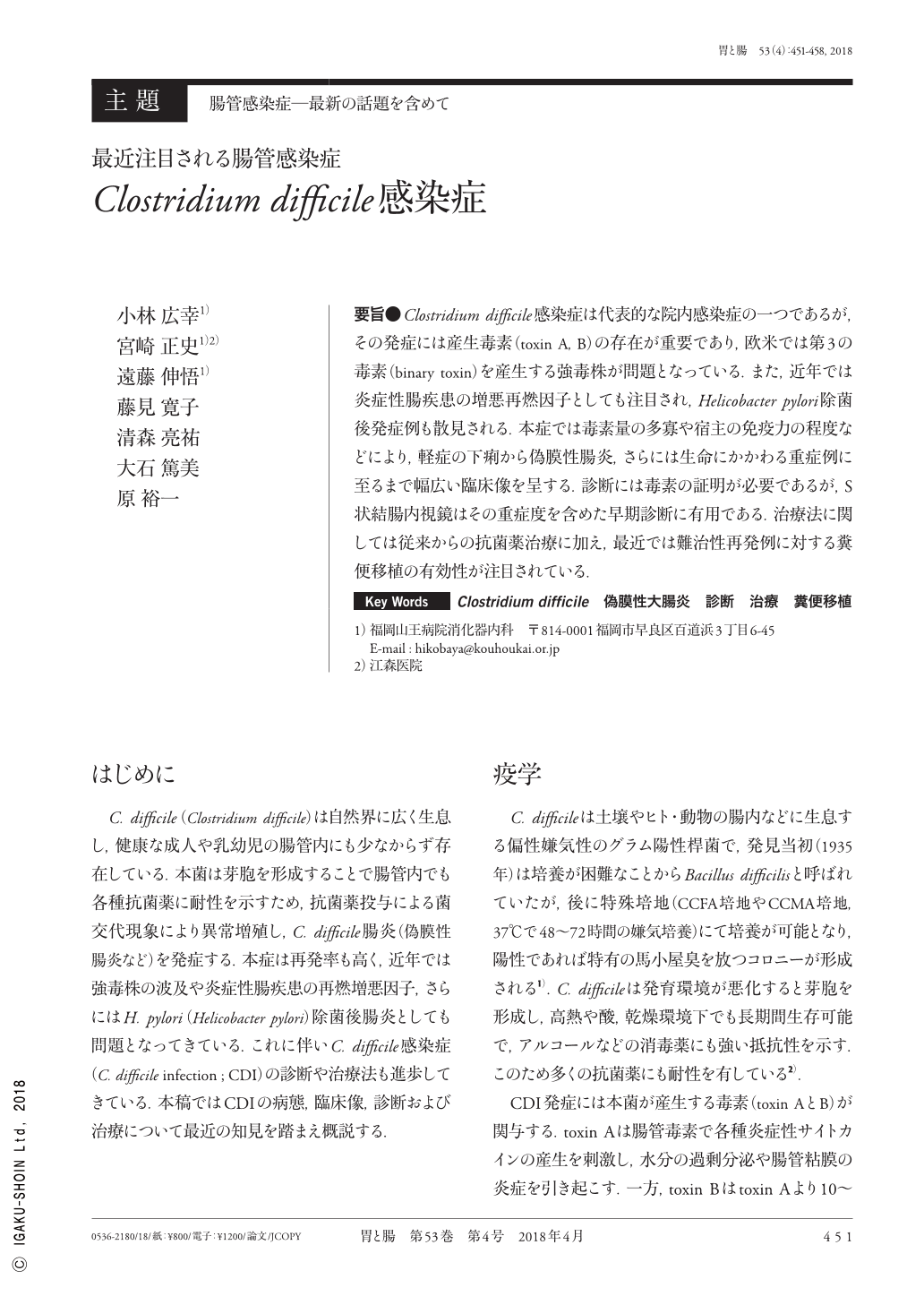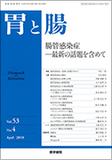Japanese
English
- 有料閲覧
- Abstract 文献概要
- 1ページ目 Look Inside
- 参考文献 Reference
- サイト内被引用 Cited by
要旨●Clostridium difficile感染症は代表的な院内感染症の一つであるが,その発症には産生毒素(toxin A,B)の存在が重要であり,欧米では第3の毒素(binary toxin)を産生する強毒株が問題となっている.また,近年では炎症性腸疾患の増悪再燃因子としても注目され,Helicobacter pylori除菌後発症例も散見される.本症では毒素量の多寡や宿主の免疫力の程度などにより,軽症の下痢から偽膜性腸炎,さらには生命にかかわる重症例に至るまで幅広い臨床像を呈する.診断には毒素の証明が必要であるが,S状結腸内視鏡はその重症度を含めた早期診断に有用である.治療法に関しては従来からの抗菌薬治療に加え,最近では難治性再発例に対する糞便移植の有効性が注目されている.
CDI〔Clostridium difficile(C. difficile)infection〕is a typical nosocomial infectious disease that causes colon inflammation. The clinical symptoms of CDI are attributed to the production of toxins A and B by toxigenic C. difficile strains. Recently, the third toxin(binary toxin), produced by positive C. difficile strains, has been reported to cause outbreaks and severe CDI in Europe and America. Typically, the clinical characteristics of C. difficile colitis range from mild diarrhea to colitis, pseudomembranous colitis, or severe diseases such as fulminant colitis. Furthermore, research has established a correlation between the infection and the deterioration of inflammatory bowel disease and C. difficile colitis after Helicobacter pylori eradication. Although the precise diagnosis of C. difficile colitis warrants evidence of toxins in patient's stool, sigmoidoscopy is used to evaluate the severity of C. difficile colitis such as pseudomembranous colitis. While antibiotics, including metronidazole and vancomycin, are the primary choice for CDI treatment, the efficacy of fecal microbiota transplantation has been recently proven in patients with intractable or recurrent CDI.

Copyright © 2018, Igaku-Shoin Ltd. All rights reserved.


